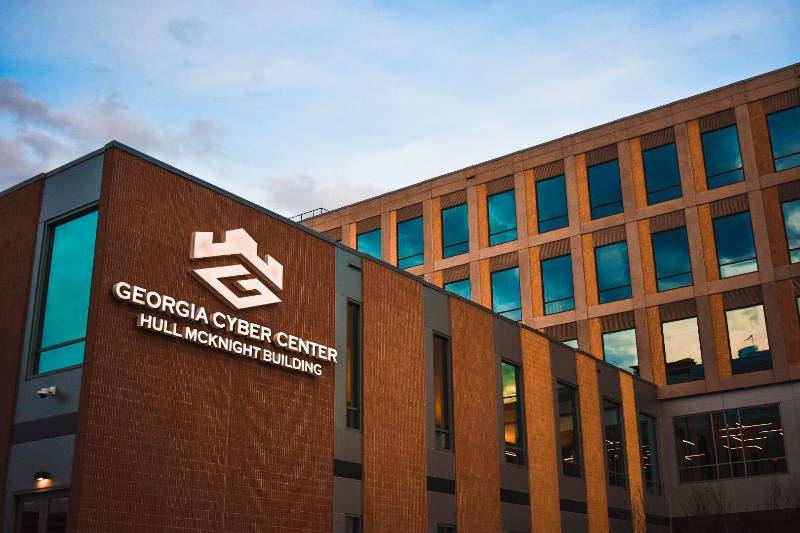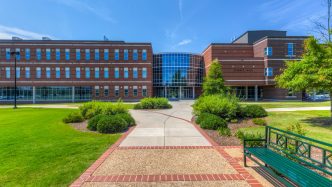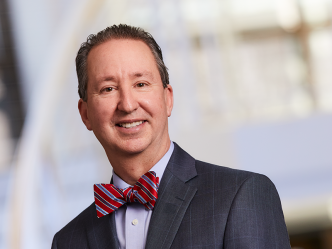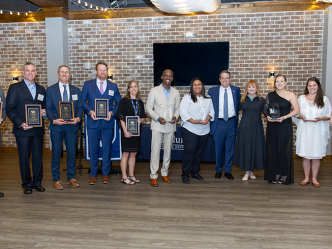Augusta University’s School of Computer and Cyber Sciences is proud to announce the addition of 10 new faculty this academic year.
The School of Computer and Cyber Sciences has experienced unprecedented growth over the past four years. Student enrollment has doubled, and, for the first time in the school’s history, the student body totals more than 700.
The school has a bold vision for the future, with excellence in both education and research at all levels. To continue providing high-engagement, state-of-the-art technology education for a growing number of students, the school has welcomed 10 new faculty members.
“We are thrilled to have 10 new fantastic faculty members on our team this school year to go along with us as we become a nationally visible college in computing, information and cybersecurity disciplines,” said Alex Schwarzmann, PhD, dean of the School of Computer and Cyber Sciences. “Now, with more than 40 full-time faculty and more than 10 part-time faculty, our students will have increased opportunities to take classes and conduct innovative research.”
- Kamal Al Nasr, PhD, is an associate professor. Al Nasr holds a doctorate in computer science from Old Dominion University and before coming to Augusta, he served on the faculty of Tennessee State University. Al Nasr also holds a master’s in computer science from New Mexico State University and a bachelor’s in computer science from Yarmouk University (Jordan). His research focuses on bioinformatics, machine learning, data analysis and image processing.
- Abdullah al-Mamun, PhD, is an assistant professor. Al-Mamun earned a doctorate in computer science and engineering from the University of Nevada, Reno; a master’s in computer science from the University of Trento (Italy) and Aachen U. (Germany); and a bachelor’s in computer science and engineering from Bangladesh. Al-Mamun’s research aims to solve the original problems that intersect distributed computing, high-performance computing and data security.
- Yuyan Bao, PhD, is an assistant professor who earned a doctorate in computer science from the University of Central Florida, a master’s in software engineering from Beihang University in China, and a bachelor’s in computer science and technology from Beijing University of Technology. Bao served as a post-doctoral associate at Penn State, Purdue and Waterloo University. Her research directions are programming languages and formal methods, with applications to cryptography and software security.
- Waylon Brunette, PhD, is an assistant professor in the tenure track. Brunette earned a doctorate in computer science, master’s in computer science and bachelor’s in software engineering from the University of Washington. He also served as a post-doctoral scholar and research engineer at the University of Washington. Brunette has interned with Google in the past and spent a year working with Amazon. Brunette is an accomplished systems builder and his research interests are in ubiquitous computing and software engineering.
- Zi Wang, PhD, is an assistant professor who earned a doctorate in computer science from Florida State University. He also holds a master’s and bachelor’s in information systems from Beijing Jiaotong University (China). His research directions are in cybersecurity (biometrics and Internet of Things security) and mobile computing (sensors and human-computer interaction). In 2021, he was awarded the Outstanding Research Award from the Florida State University Department of Computer Science.
- Wei Zhang, PhD, is an assistant professor. Zhang earned a doctorate in computer science from the University of Georgia and master’s and bachelor’s in English from Tongji University (China). Zhang served as a postdoctoral fellow at the University of California, San Francisco, in the Department of Radiology and Biomedical Imaging. His research directions are in machine learning, data mining, medical image analysis and modeling brain networks.
- Gursimran Walia, PhD, is a professor and associate dean of academic affairs. He obtained a doctorate and master’s in computer science from Mississippi State University. Walia was chair and professor of computer science at Georgia Southern University. He is an accomplished researcher in several areas of computer science and software engineering. His well-cited research is in the areas of empirical software engineering, human and software errors and software quality improvement.
- Peter Robinson, PhD, is an associate professor who holds a doctorate in computer science and a master’s in computational intelligence from the Vienna University of Technology. Robinson was an assistant professor with the City University of Hong Kong. His research focuses on designing new distributed and parallel algorithms, the distributed processing of big data, achieving fault tolerance in communication networks against adversarial attacks, and developing robust protocols that work in highly dynamic environments such as peer-to-peer Blockchain networks and mobile ad-hoc networks.
- Ming Ming Tan, PhD, is an instructor with a doctorate and bachelor’s in mathematical sciences from Nanyang Technological University (Singapore). Her doctoral work led to two publications in the journal Designs, Codes, and Cryptography. She has also worked as a senior engineer at Hong Kong Applied Science and Technology Research Institute. She has worked on graph analytics projects such as developing tools to construct a knowledge graph that facilitates corporate risk monitoring for organizations.
- Sen He, PhD, is an assistant professor who holds a doctorate in computer science from the University of Texas San Antonio. He also received a master’s in computer science from Indiana University Bloomington. While earning his PhD, he worked as a research assistant to advance research into cloud computing, software engineering and data science. In 2020, He was awarded an Outstanding Research Award by the Department of Computer Science.
In the 2022-23 academic year, the School of Computer and Cyber Sciences looks forward to awarding a historic number of degrees, including the second group of students to graduate with a cybersecurity engineering degree.
Schwarzmann says the addition of the new faculty will bring talent and research expertise to the college in several areas, including software engineering, mobile and cloud computing, cybersecurity and cryptography, distributed and high-performance computing, bioinformatics and machine learning.
The growth does not stop here, as the School of Computer and Cyber Sciences is looking yet again to add at least 10 more faculty at all levels, with responsibilities to advance education and research in all mainstream areas of computing, including information systems, computer science, cybersecurity, data science and cybersecurity engineering.
 Augusta University
Augusta University




